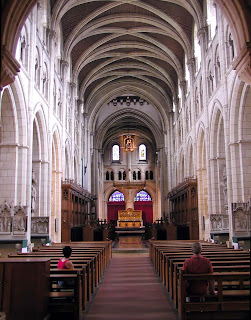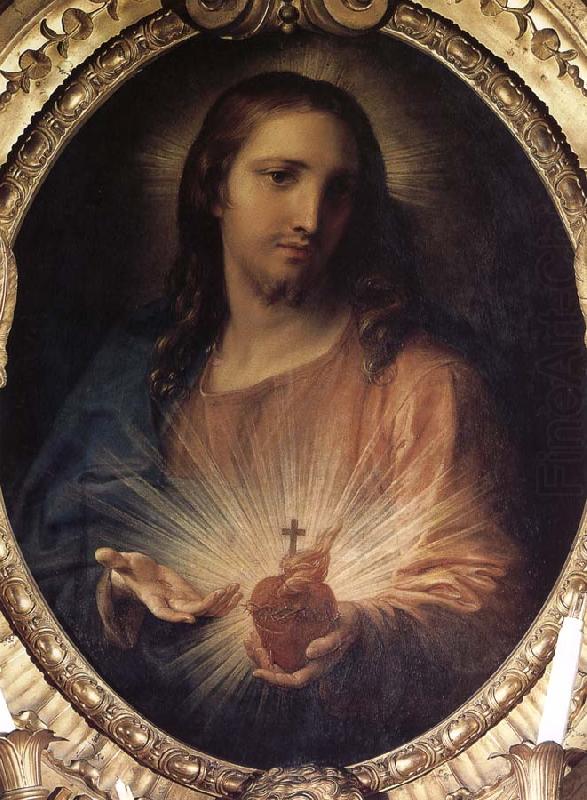When God calls men and women to Himself, He says, "What you have been freely given, give freely," especially in the West where people have been given so many opportunities for financial stability and comfort. The LIttle Flower is an example of freely giving what she received.
But, few respond to this radical call today.
The lack of vocations is not because God is no longer calling young men and young women, but because those people are either saying "no", or are not encouraged. Even trads are not encouraging their children to become religious. I am not sure why, but have some ideas why.
Encouragement from families needs to be part of the discerning process.
Too few youth have been taught how to discern decisions in their lives. Too few know how to pray, reflect, think. One thing the saints have in common is that they prayed.
We are coming to the end of the year of celebration for the birth of St. Teresa of Avila. Born in 1515, this great saint had to discern her own call, and for a while, got it wrong. She was called to renew the Carmelite Order which had fallen into laxity.
Nuns were talking too much with visitors, poverty had been set aside for comforts, endowments meant that the various houses did not have to rely on Providence for daily needs, prayer was lacking.
Her call was not merely to become a Carmelite, but to bring the Order back to its roots, the clean, pure roots which had been established by St. Simon Stock.
I have been to Aylesford in Kent, the oldest site of the Carmelites, and there it is obvious that the Order needs purifying again. But, few have answered God's call to follow Teresa and put the radical love of God, silence, and real poverty as priorities, rather than temporary "causes", large gatherings, and banal liturgies.
One senses the demise of the spirit of the Order in the Midwest as well.
Where is the energy in this order and others to bring saints into the world, or to pray for the chaos in the Church to change into a new focus for holiness?
Reading about the life of Simon Stock, one is struck by his great energy, always a sign of holiness, and one is struck with the ebb and flow of charisms within the order
from the Catholic Encyclopedia:
St. Simon obtained from Innocent IV an interim approbation, as well as certain modifications of the rule (1247). Henceforth foundations were no longer restricted to deserts but might be made in cities and the suburbs of towns; the solitary life was abandoned for community life; meals were to be taken in common; theabstinence, though not dispensed with, was rendered less stringent; the silence was restricted to the timebetween Compline and Prime of the following day; donkeys and mules might be kept for traveling and the transport of goods, and fowls for the needs of the kitchen. Thus the order ceased to be eremitical and became one of the mendicant orders. Its first title, Fratres eremitæ de Monte Carmeli, and, after the building of a chapelon Carmel in honour of Our Lady (c. 1220), Eremitæ Sanctæ Mariæ de Monte Carmeli, was now changed intoFratres Ordinis Beatissimæ Virginis Mariæ de Monte Carmeli. By an ordinance of the Apostolic Chancery of 1477 it was further amplified, Fratres Ordinis Beatissimæ Dei Genitricus semperque Virginis Mariæ de Monte Carmeli, which title was rendered obligatory by the General Chapter of 1680.
Having obtained the mitigation of the rule, St. Simon Stock, who was altogether in favour of the active life, opened houses at Cambridge (1249), Oxford (1253), London (about the same time), York (1255), Paris (1259),Bologna (1260), Naples (date uncertain), etc. He strove especially to implant the order at the universities, partly to secure for the religious the advantages of a higher education, partly to increase the number of vocations among the undergraduates. Although the zenith of the mendicant orders had already passed he was successful in both respects. The rapid increase of convents and novices, however, proved dangerous; the rule being far stricter than those of St. Francis and St. Dominic, discouragement and discontent seized many of the brothers, while the bishops and the parochial clergy continued to offer resistance to the development of the order. He died a centenarian before peace was fully restored. With the election of Nicholas Gallicus (1265-71) a reaction set in; the new general, being much opposed to the exercise of the sacred ministry, favoured exclusively the contemplative life. To this end he wrote a lengthy letter entitled "Ignea sagitta" (unedited) in which he condemned in greatly exaggerated terms what he called the dangerous occupations of preaching and hearing confessions. His words remaining unheeded, he resigned his office, as did also his successor, Radulphus Alemannus (1271-74), who belonged to the same school of thought.
St. Teresa brought the Order back to the foundations of contemplative prayer and a more eremitical life. But, these gifts to the Church have been set aside in too many convents for active ministry.
We need contemplatives, as well as "actives".
Today, I ask young readers to consider following Christ by joining and renewing the religious orders which need renewal. What you have been freely given, give away freely.
I suggest young women look at the Carmelites in Denton, Nebraska. I also suggest young women looking at the Benedictines in Kansas, Our Lady Queen of Apostles, as well as the Benedictines at Clear Creek.
Young men have more options in places where there is renewal: Clear Creek, Wyoming Carmelites, Order of St. John in Princeville, Il., (there are nuns there as well-I have visited this very interesting place), the Institute of Christ the King, the Fraternity of St. Peter, and more.








.jpg)




.jpeg)














.jpg)





